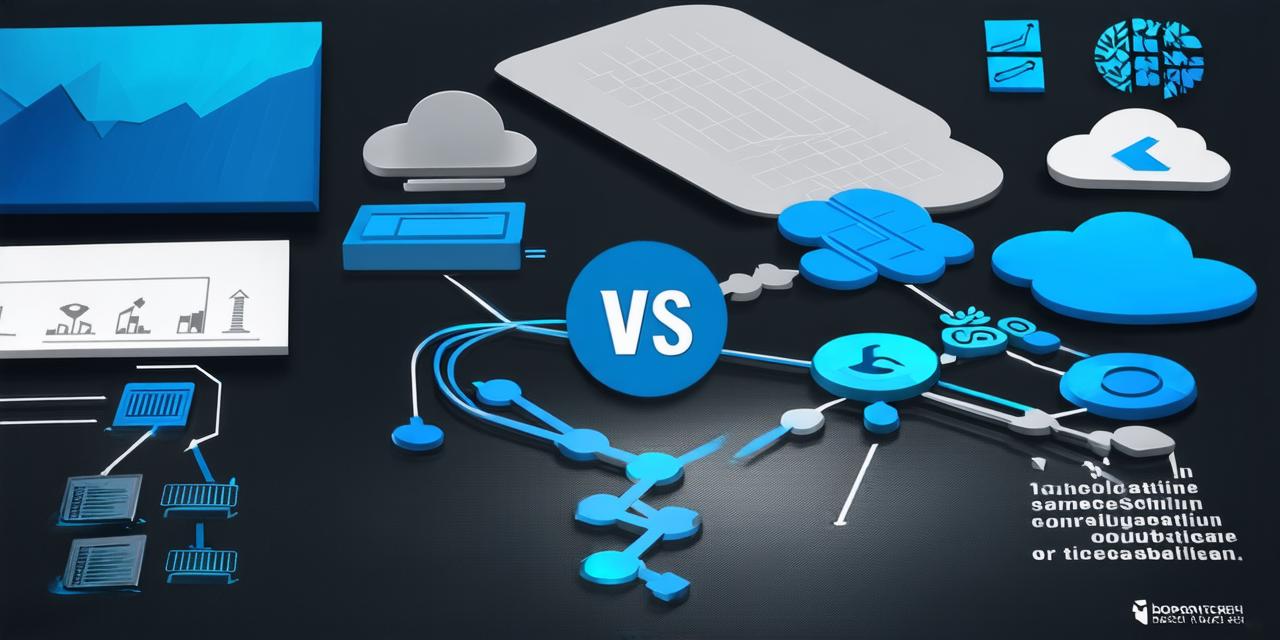
In recent years, cloud computing and blockchain have emerged as two of the most disruptive technologies in the tech industry. Both technologies have their own unique advantages and disadvantages, making it difficult to determine which one is better suited for your needs.
Cloud Computing
Cloud computing has been around for a while now, but it’s only in the last few years that it’s become mainstream. At its core, cloud computing allows users to access applications and services over the internet rather than on their own devices. This means that users can access their data and applications from anywhere, at any time.
One of the biggest advantages of cloud computing is its scalability. Users can easily scale up or down depending on their needs. For example, if a company suddenly experiences a surge in demand for its products or services, it can quickly scale up its cloud infrastructure to meet that demand. This makes cloud computing a great option for businesses that are growing rapidly.
Another advantage of cloud computing is its cost-effectiveness. Users only pay for the resources they use, which means that they don’t have to invest in expensive hardware and software. This can be especially beneficial for small businesses or startups that may not have a large budget.
However, there are also some disadvantages to cloud computing. One of the biggest concerns is security. Because data is stored on servers located in remote data centers, there’s always a risk of data breaches or hacking attacks. Additionally, users have limited control over their infrastructure, which can make it difficult to customize their environment to suit their specific needs.
Blockchain
Blockchain technology, on the other hand, is relatively new. It was first introduced in 2008 with the launch of Bitcoin, a decentralized digital currency. Blockchain technology allows for secure and transparent transactions without the need for intermediaries like banks or other financial institutions.
One of the biggest advantages of blockchain technology is its immutability. Once data is stored on the blockchain, it cannot be altered or deleted. This makes it an ideal solution for applications where transparency and security are paramount, such as in finance or supply chain management.
Another advantage of blockchain technology is its decentralization. Because there’s no central authority controlling the network, there’s less risk of a single point of failure. This makes it a great option for applications that require high availability and fault tolerance.
However, there are also some disadvantages to blockchain technology. One of the biggest challenges is scalability. Because each block on the blockchain contains a record of all transactions, adding new data can become slow and resource-intensive. Additionally, because blockchain technology is still relatively new, there’s less established infrastructure and support available compared to cloud computing.
Cloud Computing
vs
Blockchain
: Which One is Better?
Ultimately, the decision between cloud computing and blockchain will depend on your specific needs and requirements. If you need a scalable, cost-effective solution that allows for easy access to data and applications from anywhere in the world, cloud computing may be the best option for you. However, if you need a secure, transparent solution with immutable data that requires high availability and fault tolerance, blockchain technology may be more suitable.
It’s important to carefully consider your specific needs and requirements before making a decision. Cloud computing may be better suited for businesses that require flexibility and scalability, while blockchain technology may be more appropriate for businesses that need immutable data and high security. In any case, both technologies have their own unique advantages and disadvantages, so it’s important to weigh them carefully before making a choice.



